The Well-Tempered Ear
Classical music: The Middleton Community Orchestra and UW-Madison horn player Dafydd Bevil excel in a concerto by Richard Strauss and a theater suite by Ralph Vaughan-Williams. Plus, the UW’s Perlman Trio performs Saturday afternoon
4 Comments
ALERT: On SATURDAY – (not today as first mistakenly listed) –at 3:30 p.m. in Morphy Recital Hall, the annual FREE concert by the UW’s Perlman Trio — named after benefactor Kato Perlman — will perform piano trios by Franz Joseph Haydn and Robert Schumann, and a piano quartet by Johannes Brahms. A reception will follow For more information about the student performers and the full program, go to: https://www.music.wisc.edu/event/the-perlman-trio/
By Jacob Stockinger
Here is a special posting, a review written by frequent guest critic and writer for this blog, John W. Barker. Barker (below) is an emeritus professor of Medieval history at the University of Wisconsin-Madison. He also is a well-known classical music critic who writes for Isthmus and the American Record Guide, and who hosts an early music show once a month on Sunday morning on WORT FM 89.9 FM. For years, he served on the Board of Advisors for the Madison Early Music Festival and frequently gives pre-concert lectures in Madison. Barker also took the performance photos.
By John W. Barker
The Middleton Community Orchestra (below), under conductor Kyle Knox, brought off a splendid concert on last Wednesday evening.
The opening item was the Introduction and Allegro, Op. 47, for string quartet and string orchestra by Edward Elgar. This is a broad work of great Romantic sweep, featuring the lush textures pitting a large ensemble against a miniature one.
The largely amateur Middleton orchestra fields a very large string section. It has not yet completely fused into a suave entity, but the 30-odd players did a brave job of capturing the music’s rhetorical richness.
The soloist for the evening was Dafydd Bevil (below), a French horn player who is very active in a number of orchestras and ensembles in the Madison area while currently engaged in doctoral studies at the University of Wisconsin-Madison’s Mead Witter School of Music.
Bevil boldly chose as his vehicle the second of Richard Strauss’ two horn concertos. Neither is heard in concert very much, though the Concerto No. 1 is a little more familiar from recordings. That is a bravura piece, composed in 1882, when Strauss (below) was 18, and was written for his father, Germany’s foremost horn virtuoso.
The Concerto No. 2 dates from the other end of Strauss’s career, in 1942, the first of some wind concertos undertaken during and after World War II. Intended to recapture his earlier instrumental style, it is a much more studied piece than its predecessor.
Bevil, clearly a player of exceptional skill and musicality, powerfully met Strauss’ showy and florid solo writing. This is a virtuoso musician with a promising future.
The remainder of the concert was devoted to the first of what would be a number of scores Ralph Vaughan Williams (below) prepared to fit Classical Greek plays. (RVW was himself a very accomplished master of ancient Greek.)
In 1912, inspired by the translations of Gilbert Murray, he produced music to set Murray’s English texts for three of the plays by Euripides: The Bacchae, Electra, and Iphigenia in Tauris.
Before that, however, in 1909, still early in his career, Vaughan Williams composed incidental music to a production (in Greek) of the comedy by Aristophanes, The Wasps.
From that Aristophanic score, the composer put together an orchestral concert suite of an overture and five incidental numbers. The overture itself has enjoyed some frequency of concert performances, but the full suite is little known to the public over here.
It was a clever stroke of programming that Kyle Knox (below) led the orchestra in the full suite. This is delightful music, full of typical Vaughan Williams whimsy, inventiveness, and cleverness. Sounding simple, it creates balances and details not easy to manage, but Knox and the orchestra performed it with dazzling flair. (You can hear the rarely performed full suite in the YouTube video at the bottom)
This is exactly the kind of enterprise that makes the Madison area’s musical life so stimulating and joyous.
Tags: #AmateurMusicians, #AmericanRecordGuide, #AncientGreece, #AncientGreek, #ClassicalGreece, #ClassicalGreek, #EdwardElgar, #EnglishLanguage, #FranzJosephHaydn, #FrenchHorn, #GilbertMurray, #GreekLiterature, #GreekTragedy, #HornConcerto, #HornMusic, #IncidentalMusic, #IsthmusNewspaper, #JohannesBrahms, #JohnW.Barker, #JohnWBarker, #KatoPerlman, #KyleKnox, #LateRomanticism, #MadisonEarlyMusicFestival, #MeadWitterSchoolofMusic, #MedievalHistory, #MiddletonCommunityOrchestra, #MiddletonWisconsin, #PerlmanTrio, #PianoQuartet, #PianoTrio, #RadioMusic, #RadioShows, #RalphVaughanWilliams, #RichardStrauss, #RobertSchumann, #RomanticMusic, #StringMusic, #StringQuartet, #TheWasps, #UniversityofWisconsin, #UniversityofWisconsin-Madison, #WindMusic, #WorldWarII, #WORT-FM89.9, allegro, amateur, Aristophanes, Arts, balance, brave, bravura, Cello, Chamber music, Classical music, cleverness, comedy, composer, concerto, critic, dazzling, details, doctoral, Early music, earlymusic, English, ensemble, Euripides, father, flair, florid, future, Germany, guest, History, host, incidental music, instrumental, introduction, Introduction and Allegro, Isthmus, Jacob Stockinger, job, Johannes Brahms, John W. Barker, Joy, joyous, large, lecture, lush, Madison, Medieval, Medieval history, miniature, Music, musicians, Orchestra, orchetsras, Overture, performance, photo, production, professor, promising, Radio, rhetoric, rhetorical, richness, Romanticism, score, solo, stimulating, String quartet, strings, studies, style, Suite, symphony, text, texture, translation, United States, University of Wisconsin-Madison School of Music, University of Wisconsin–Madison, vehicle, Viola, Violin, virtuoso, winds, YouTube
- May 2024
- April 2024
- March 2024
- February 2024
- January 2024
- December 2023
- November 2023
- October 2023
- September 2023
- August 2023
- July 2023
- June 2023
- May 2023
- April 2023
- March 2023
- February 2023
- January 2023
- December 2022
- October 2022
- September 2022
- June 2022
- May 2022
- April 2022
- March 2022
- July 2021
- June 2021
- May 2021
- April 2021
- March 2021
- February 2021
- January 2021
- December 2020
- November 2020
- October 2020
- September 2020
- August 2020
- July 2020
- June 2020
- May 2020
- April 2020
- March 2020
- February 2020
- January 2020
- December 2019
- November 2019
- October 2019
- September 2019
- August 2019
- July 2019
- June 2019
- May 2019
- April 2019
- March 2019
- February 2019
- January 2019
- December 2018
- November 2018
- October 2018
- September 2018
- August 2018
- July 2018
- June 2018
- May 2018
- April 2018
- March 2018
- February 2018
- January 2018
- December 2017
- November 2017
- October 2017
- September 2017
- August 2017
- July 2017
- June 2017
- May 2017
- April 2017
- March 2017
- February 2017
- January 2017
- December 2016
- November 2016
- October 2016
- September 2016
- August 2016
- July 2016
- June 2016
- May 2016
- April 2016
- March 2016
- February 2016
- January 2016
- December 2015
- November 2015
- October 2015
- September 2015
- August 2015
- July 2015
- June 2015
- May 2015
- April 2015
- March 2015
- February 2015
- January 2015
- December 2014
- November 2014
- October 2014
- September 2014
- August 2014
- July 2014
- June 2014
- May 2014
- April 2014
- March 2014
- February 2014
- January 2014
- December 2013
- November 2013
- October 2013
- September 2013
- August 2013
- July 2013
- June 2013
- May 2013
- April 2013
- March 2013
- February 2013
- January 2013
- December 2012
- November 2012
- October 2012
- September 2012
- August 2012
- July 2012
- June 2012
- May 2012
- April 2012
- March 2012
- February 2012
- January 2012
- December 2011
- November 2011
- October 2011
- September 2011
- August 2011
- July 2011
- June 2011
- May 2011
- April 2011
- March 2011
- February 2011
- January 2011
- December 2010
- November 2010
- October 2010
- September 2010
- August 2010
- July 2010
- June 2010
- May 2010
- April 2010
- March 2010
- February 2010
- January 2010
- December 2009
- November 2009
- October 2009
- September 2009
- August 2009
Archives
- 2,491,527 hits
Blog Stats
Recent Comments
| Brian Jefferies on Classical music: A major reass… | |
| welltemperedear on What made Beethoven sick and… | |
| rlhess5d5b7e5dff on What made Beethoven sick and… | |
| welltemperedear on Beethoven’s Ninth turns 200… | |
| Robert Graebner on Beethoven’s Ninth turns 200… |
Tags
#BlogPost #BlogPosting #ChamberMusic #FacebookPost #FacebookPosting #MeadWitterSchoolofMusic #TheEar #UniversityofWisconsin-Madison #YouTubevideo Arts audience Bach Baroque Beethoven blog Cello Chamber music choral music Classical music Compact Disc composer Concert concerto conductor Early music Facebook forward Franz Schubert George Frideric Handel Jacob Stockinger Johannes Brahms Johann Sebastian Bach John DeMain like link Ludwig van Beethoven Madison Madison Opera Madison Symphony Orchestra Mead Witter School of Music Mozart Music New Music New York City NPR opera Orchestra Overture Center performer Pianist Piano post posting program share singer Sonata song soprano String quartet Student symphony tag The Ear United States University of Wisconsin-Madison School of Music University of Wisconsin–Madison Viola Violin vocal music Wisconsin Wisconsin Chamber Orchestra wisconsin public radio Wolfgang Amadeus Mozart YouTube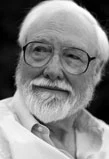
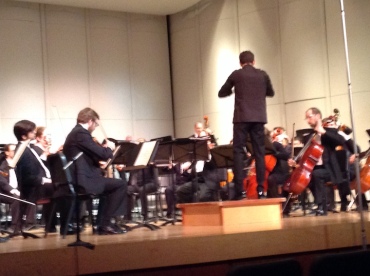
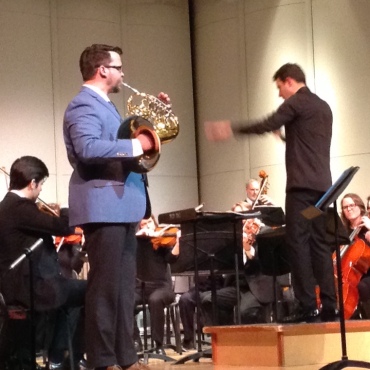
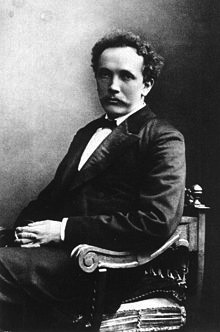
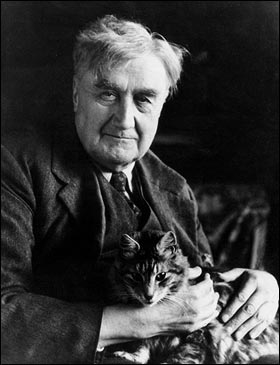

Classical music: In 2019 who died? What recordings won prizes? What music had its premiere? Here is a comprehensive and detailed worldwide retrospective from Wikipedia
2 Comments
PLEASE HELP THE EAR. IF YOU LIKE A CERTAIN BLOG POST, SPREAD THE WORD. FORWARD A LINK TO IT OR, SHARE IT or TAG IT (not just “Like” it) ON FACEBOOK. Performers can use the extra exposure to draw potential audience members to an event. And you might even attract new readers and subscribers to the blog.
By Jacob Stockinger
A new year is always a good time to do a review and take a look backward to assess the previous year.
Many local publications – newspapers and magazines — do Best of the Year round-ups.
But The Ear has never seen a more comprehensive list with major news and almost daily entries around the world than he found in Wikipedia, which has retrospectives going back to 2009 and looking forward to 2029.
In short, all the reviws are well worth exploring for the reminders they hold that, as the proverb goes, “Ars longa, vita brevis” or “Art is long, life is short.” (It is usually quoted in Latin translation from the original ancient Greek that was written by Hippocrates.)
There are seven different categories to click on, each with long entries. If you hover the cursor over the names or words that are spelled in blue, you will see more text and often a photograph. The categories are:
EVENTS
NEW WORKS
NEW OPERAS
ALBUMS
DEATHS
MAJOR AWARDS
REFERENCES
There are so many details that you may want to check out just one or two categories at a time over several days.
Here is a link: https://en.wikipedia.org/wiki/2019_in_classical_music
Do you know of someone or something – especially of local importance, such as the death in October of longtime Madison music critic John W. Barker (below, in a photo by Mark Golbach) – that did not make the list? Please leave word in the Comment section.
And here’s hoping that 2020 brings us even more important and memorable new and old music, but less loss.
Share this:
Tags: #BaroqueMusic, #BestoftheYear, #BlogPost, #BlogPosting, #ChamberMusic, #ChoralMusic, #ClassicalGreek, #FacebookPost, #FacebookPosting, #GrammyAward, #GramophoneAward, #GramophoneMagazine, #InstrumentalMusic, #JohnW.Barker, #JunoAwards, #LatinLanguage, #MadisonWisconsin, #MarkGolbach, #MusicCritic, #NewMusic, #NewYear, #OperaMusic, #OrchestralMusic, #TheEar, #VocalMusic, #Wikipediaentry, 2019, 2020, Album, ancient, Ars longa, Arts, assess, audience, award, Bach, backward, Baroque, Beethoven, Best of the Year, blog, blue, brass, category, Cello, Chamber music, choral music, Classical, Classical music, classicalmusic, comment, Compact Disc, composer, comprehensive, concerto, conductor, cursor, daily, day, dead, death, detail, Early music, entries, event, explore, Facebook, forward, Franz Schubert, Grammy, Gramophone, Gramophone Award, Greek, Hippocrates, hover, important, instrumental, instrumental music, Jacob Stockinger, Johann Sebastian Bach, Johannes Brahms, John W. Barker, journalism, Juno, Latin, like, link, list, local, look, Ludwig van Beethoven, Madison, magazine, major, Mark Golbach, memorable, Mozart, Music, music critic, name, new, New Music, New Year, news, Newspaper, October, old, online, opera, Orchestra, orchestral music, performer, photograph, Piano, post, posting, prize, proverb, publication, recording, reference, retrospective, review, round-up, share, Sonata, spell, symphony, tag, text, The Ear, translation, United States, Viola, Violin, vita brevis, vocal music, Website, Wikipedia, winds, Wisconsin, Wolfgang Amadeus Mozart, word, world, year